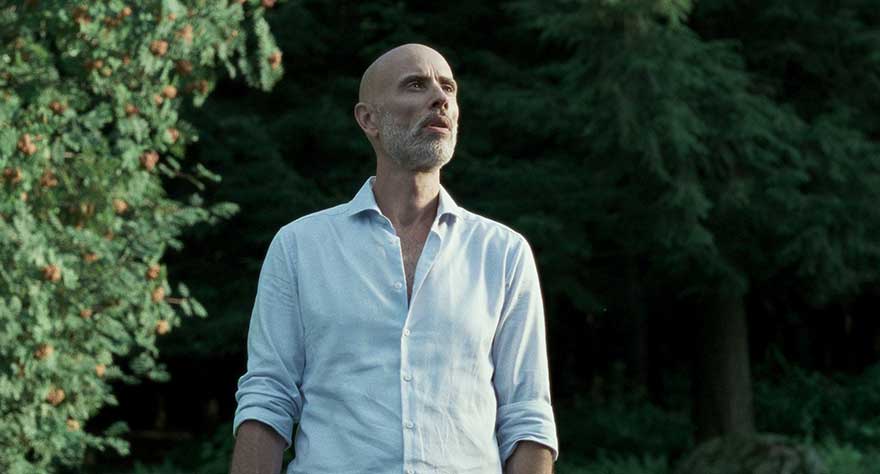
Denis Côté's latest film is a visually striking look at one man's unchecked privilege.

Denis Côté's latest film is a visually striking look at one man's unchecked privilege.
After making films about social recluses (Curling), ex-convicts (Vic + Flo Saw a Bear) and venturing into documentaries on animals (Bestiaire) and factory workers (Joy of Man’s Desiring), French-Canadian filmmaker Denis Côté sets his sights on the upper class in Boris Without Béatrice. Its story, about a successful businessman confronting his own privilege after a surreal encounter, will undoubtedly rub people the wrong way given its sympathetic view towards an unsympathetic protagonist, but fans of Côté’s precise, arresting style will find plenty to enjoy, even if it’s in strictly formal terms.
James Hyndman plays Boris Malinovsky, a middle-aged man as arrogant as he is successful. Early scenes establish Boris’ rich lifestyle and hubris, like when he gets furious at the cashier of a high-class clothing store for asking him too many questions or crashes a town hall to lambast the mayor for not prioritizing an unpaved road near his house. But Boris’ obnoxious sense of pride and short temper might be influenced by added stress at home; his wife Béatrice (Simone-Élise Girard), a minister for the Canadian government, has come down with a severe depression that’s left her mute and bedridden. Boris, unable to deal with his wife’s ailment, hires Klara (Isolda Dychauk) to take care of her while he continues an affair with co-worker Helga (Dounia Sichov). It’s a typical case of someone using their wealth to fill the holes in their life with something else, rather than putting the work in to try and gain back what’s lost.
For a character so stuck in his own self-inflated world, it will take a lot to shake Boris from his foundation. Enter Denis Lavant as an unknown stranger, who leaves a message in Boris’ mailbox urging him to meet late at night in a nearby quarry. Their meeting, which feels like Côté’s version of the Cowboy scene in Mulholland Drive, has Lavant (who electrifies the film just by showing up in a kurta) explaining to Boris that he’s the cause for Béatrice’s condition, and in order to cure her, he needs to change his life. The encounter throws Boris into a crisis that makes him re-evaluate his life while diving further into his selfish comforts when he starts an affair with Klara.
While Boris Without Béatrice may be Côté’s first time dealing with affluent characters, he’s far from the first filmmaker to explore the problems people can afford to have, and the thematic familiarity can make certain stretches feel a bit stale. But one of Côté’s strengths has always been his ability to build an enclosed yet well-realized universe within each of his films, so it comes as no surprise that his style fits nicely when operating within the bubble of someone’s privileged existence.
Teaming up with cinematographer Jessica Lee Gagné, Côté extends the functional qualities of the narrative to the film’s visuals. Just as every action in the film leads to a direct reaction involving some other aspect of the story— Béatrice’s health improves or worsens depending on how Boris acts—Côté uses environments to make a direct commentary on each character’s current state, whether it’s obscuring Béatrice behind reflective surfaces or using the vertical lines throughout Boris’ sleek estate to make him appear separated from others within the same scene. Côté’s efficiency when it comes to establishing information through visuals is most effective when using flashbacks to show Boris reflecting on happier times with his wife. Shooting these (brief) moments in warm tones on what looks like 8mm film, the organic and textured look of the footage establishes that, despite his bad behavior, Boris’ love for Béatrice is real.
For any shortcomings Boris Without Béatrice might have storywise, Côté’s direction and his ensemble pick up the slack. It may lack the same unpredictability that made Vic + Flo Saw a Bear so strong, but Côté has firmly established himself as one of Canada’s strongest and most consistent directors working today.